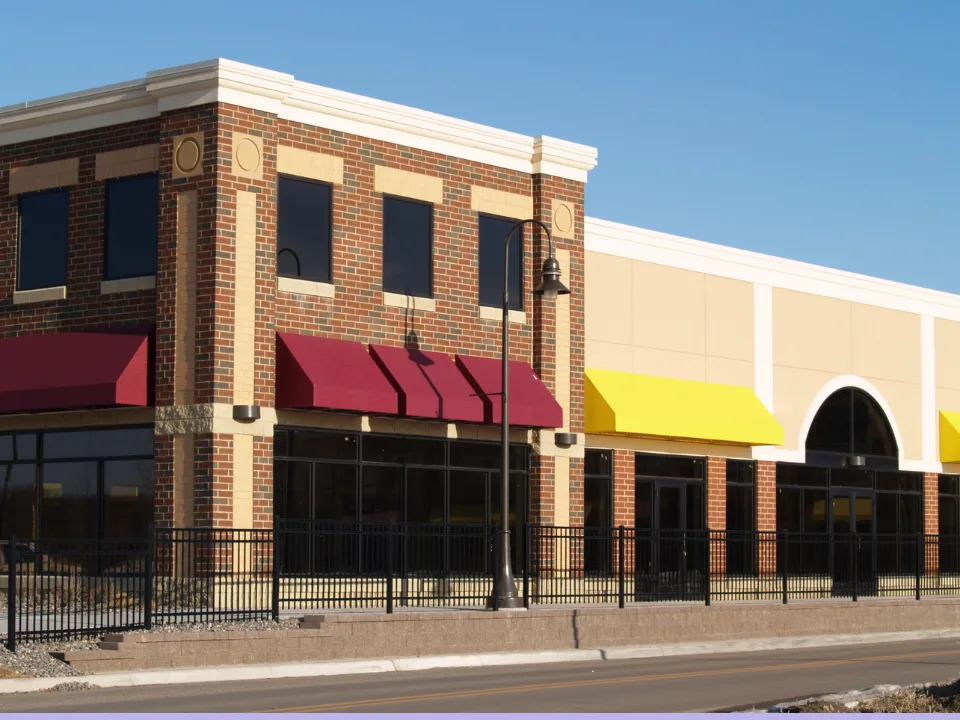NYCB Suffers Q2 Loss Due to Multifamily Loan Problems
New York Community Bank (NYCB) reported its second consecutive quarterly loss as it struggles to stabilize operations and reassure investors.
Good morning. NYCB’s multifamily loan portfolio, heavily tied to New York’s rent-stabilized sector, is under mounting pressure. Plus, Bismarck, North Dakota, tops a recent WalletHub ranking as the most affordable rental market in the country.
Today’s issue is sponsored by Redwood Living—explore real estate investments in the Midwest BTR market.
🎧️ No Cap Podcast: Josh Sasouness sits down to share his journey about how he and his brother built Dwight Capital from the ground up into one of the top multifamily FHA/HUD lenders in the US.
Market Snapshot
|
|
||||
|
|
*Data as of 7/25/2024 market close.
MULTIFAMILY EARNINGS
NYCB Suffers Q2 Loss, Sells More Assets, Blames Multifamily

New York Community Bank (NYCB) reported its second consecutive quarterly loss as it struggles to stabilize operations and reassure investors.
Boost liquidity: Hours before its earnings call, NYCB announced it sold its mortgage warehouse loan business to JPMorgan Chase for $5.9B and its residential mortgage servicing business to Mr. Cooper Group for $1.4B. NYCB’s CFO stressed that the bank now holds a “fairly strong liquidity position.”
Multifamily mess: NYCB’s multifamily loan portfolio, heavily tied to New York’s rent-stabilized sector, is under scrutiny. The bank reviewed 80% of this portfolio, revealing a troubling increase in delinquencies (up 767%), charge-offs (up 590%), and non-accruals (up 134%). Yikes.
Zoom in: NYCB has undergone significant leadership changes, including replacing its CEO twice and revamping its C-suite. Current CEO Joseph Otting highlighted a comprehensive review and re-underwriting of multifamily loans, particularly those around breakeven. This review led to an expanded credit loss allowance of $1.2 billion, a 113% increase YoY, following the adjustment of interest rates on maturing or repricing loans from 3% to 8%.
Delinquency spike: In Q2, charge-offs surged to $349M from $81M in Q1, and non-accrual loans almost tripled to nearly $2B. Despite a 468% surge in delinquencies to $1.2 billion from the previous quarter, NYCB managed to reduce this figure to around half a billion dollars by July 24, thanks to repayments. The bank maintains liquidity of about $40 billion, enough to cover its $13 billion in uninsured deposits…for now.
➥ THE TAKEAWAY
Looking ahead: NYCB reported a Q2 loss of $1.14 per share, better than Q1’s $1.36 per share loss, with a 6% revenue increase to $671M. Despite this, Wall Street remained unimpressed, sending the stock down 17% on Thursday. In response, CEO Joseph Otting announced plans to sell $2B to $5B in non-core businesses to further boost liquidity.
TOGETHER WITH REDWOOD
Don’t Miss this BTR Equity Deal in the Detroit MSA
Known for its multifamily neighborhoods of single-story, two-bed, two-bath apartments with attached garages, Redwood Living, Inc. has a new equity deal currently accepting investors.
Offering investors a 10% preferred pay rate, 20% in equity, plus long-term income potential, and potential future refinances, Redwood Orchard Brook 3 may be the Midwest BTR deal investors have been looking for.
✍️ Editor’s Picks
-
Across the pond: Deutsche Bank (DB) expects more pressure in 2H24 due to CRE exposure, particularly to the office sector, and expects provisions for credit losses to top 30 bps.
-
Master Real Estate Investing: Reserve your spot in the 8-week online Wharton Online & Wall Street Certificate Program. Build your network, gain practical skills, and learn from top CRE executives. Use code CREDAILY by 8/12 to save $500.
-
Unemployment uptick: The national unemployment rate rose to 4.1% in July, renewing recession fears with a 43 on the Sahm indicator. Let’s see what the Fed does now.
-
Lending leader: Invesco CRE Finance Trust (INCREF) is taking advantage of the bank lending gap and has surpassed $1.4B in originations, adding 22 loans since May 2023.
-
Market squeeze: After years in the limelight, the once white-hot US housing market sees new home sales hit a seven-month low in June amidst rising inventory, high rates, and inflated prices.
-
Commercial comeback: The CRE market in Canada is rebounding, with Q2 transactions exceeding $12B, driven by multifamily, industrial, and retail properties.
-
Mexican movement: Interest from wealthy Mexicans in Miami condos surges post-election, with concerns about complex taxation and the rule of law escalating.
🏘️ MULTIFAMILY
-
Top markets: Bismarck, ND, tops a recent WalletHub ranking as the most affordable rental market in the country, with renters spending just 15% of their income on rent.
-
Hand it over: Ballast Investments and Goldman Sachs (GS) gave up 82 buildings in San Francisco after owing nearly $730M, and transferred 1,211 units to RBC Capital.
-
Slinging deals: Multifamily apartment deals in NYC surged 108% quarter over quarter to $2.83B, largely driven by maturing loans that positioned sponsors to be saddled with higher interest rates.
-
Rent rebound: The LA apartment market saw asking rents rise to $2.22K per month in Q2, up 11.5% since 2Q20, with steady occupancy.
-
Workforce makeover: Bridge Investment Group Holdings and Bridge Workforce Funding purchased a 418-unit complex for $101M, planning workforce housing upgrades.
-
Apartment innovations: Nonprofit and impact investors raised $135M to buy apartments, aiming to combat record-high US homelessness numbers.
🏭 Industrial
-
Bursting pipeline: Denver’s industrial availability rate surged to 9.5% in Q2 thanks to 2MSF of new construction, with 42.9% already preleased for 2H24.
-
Warehouse workhorse: Jacksonville saw a jump in its industrial market supply, thanks in large part to a 550 KSF Primark facility fully leased and sold by VanTrust to INDUS Realty.
-
High-flying financing: Goldman Sachs (GS) and Triangle Equities secured an $85M refinancing loan for NYC’s Terminal Logistics Center, a fully leased industrial space.
-
Industrial blues: Cleveland’s industrial market leasing activity dropped to a decade-low at roughly 880 KSF in Q2, down from 1.6 MSF last year.
🏬 RETAIL
-
Swipe right: Tinder founder Justin Mateen and his brother acquired the Wilshire Rodeo Plaza for $211 million, marking Beverly Hills’ largest property transaction since 2019.
-
Brooklyn boom: Empire State Realty Trust (ESRT) expanded its retail presence in Brooklyn with two North 6th Street building acquisitions for $195M.
-
Furniture fallout: Conn’s HomePlus (CONN) plans to close over 100 of its stores as it faces liquidation after filing for Chapter 11 bankruptcy.
🏢 OFFICE
-
Financial reinvention: Miami’s 830 Brickell, a 57-story tower covering 640 KSF managed by a JV between Cain International and OKO Group, secured a $565M loan to pay off debts.
-
Building more homes: San Francisco Mayor Breed proposed a new ordinance to allow housing development in SoMa, where office vacancies are at a record 37%.
🏨 HOSPITALITY
-
Boutique bonanza: Hyatt (H) is still in advanced talks to acquire Standard International, which would significantly expand its worldwide offering of luxury and resort rooms.
-
Top hoteliers: Houston leads the US hotel market in YoY occupancy (+29.6%), ADR (+20.3%), and RevPAR (+56.0%) increases.
📈 CHART OF THE DAY
Moody’s Analytics predicts that by the end of 2024, vacancy rates in the self-storage sector will be in the mid- to high-12% range, dropping to the low-12% range by the end of 2025. The pandemic-driven boom is over, and the sector is expected to stabilize over the next 12 to 18 months as the labor market gradually cools.

You currently have 0 referrals, only 1 away from receiving B.O.T.N Multifamily Deal Screener .
What did you think of today’s newsletter? |




















